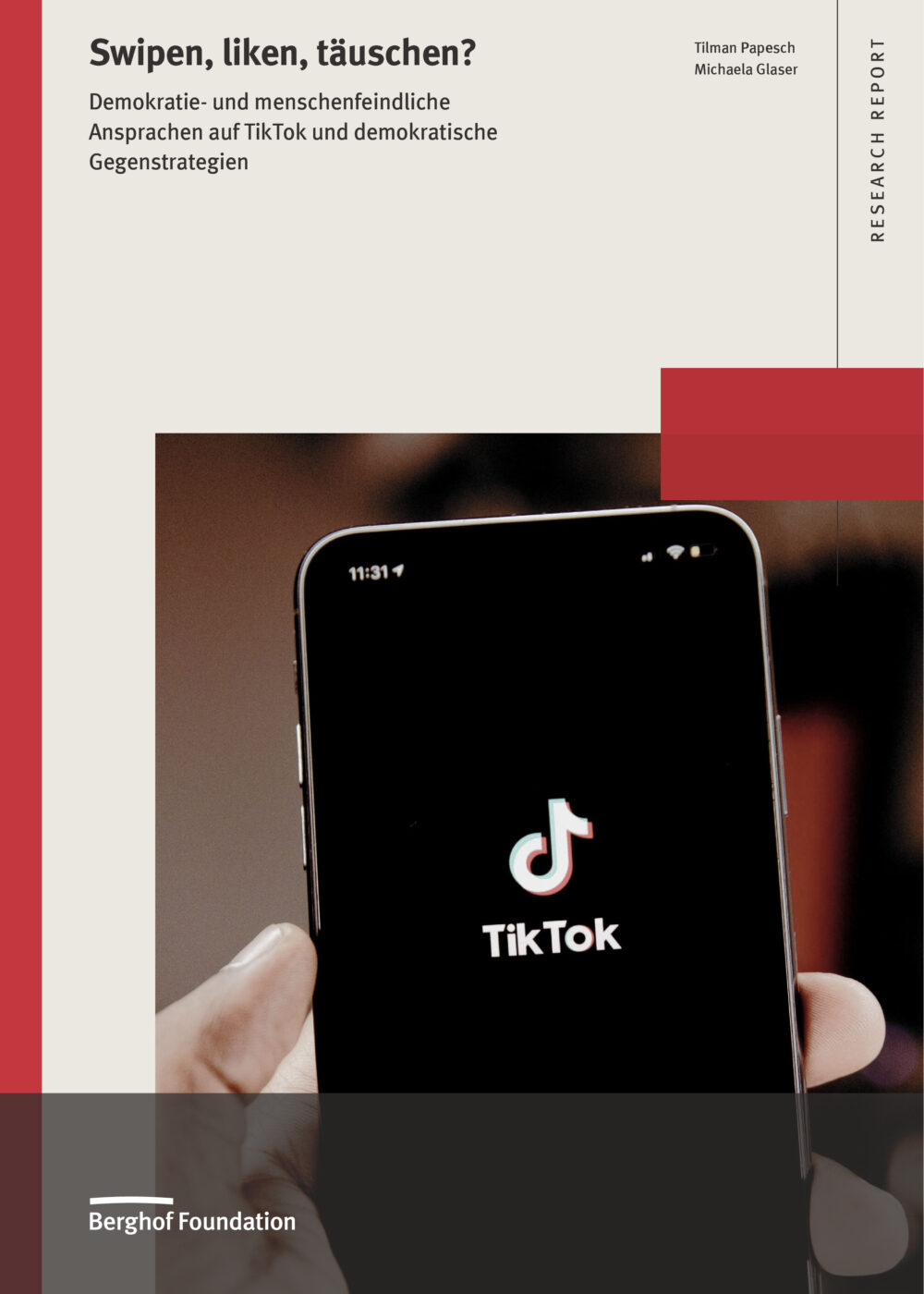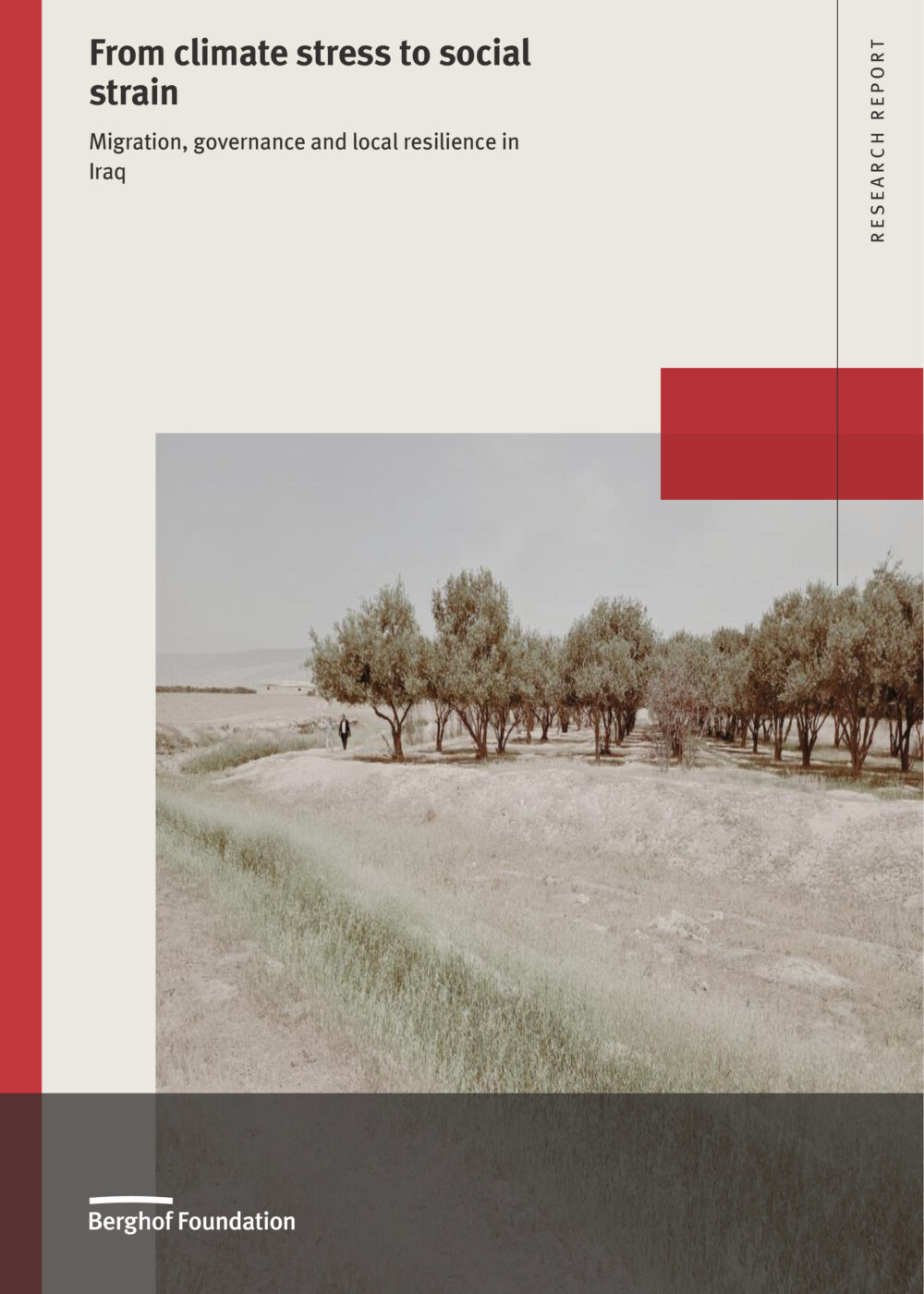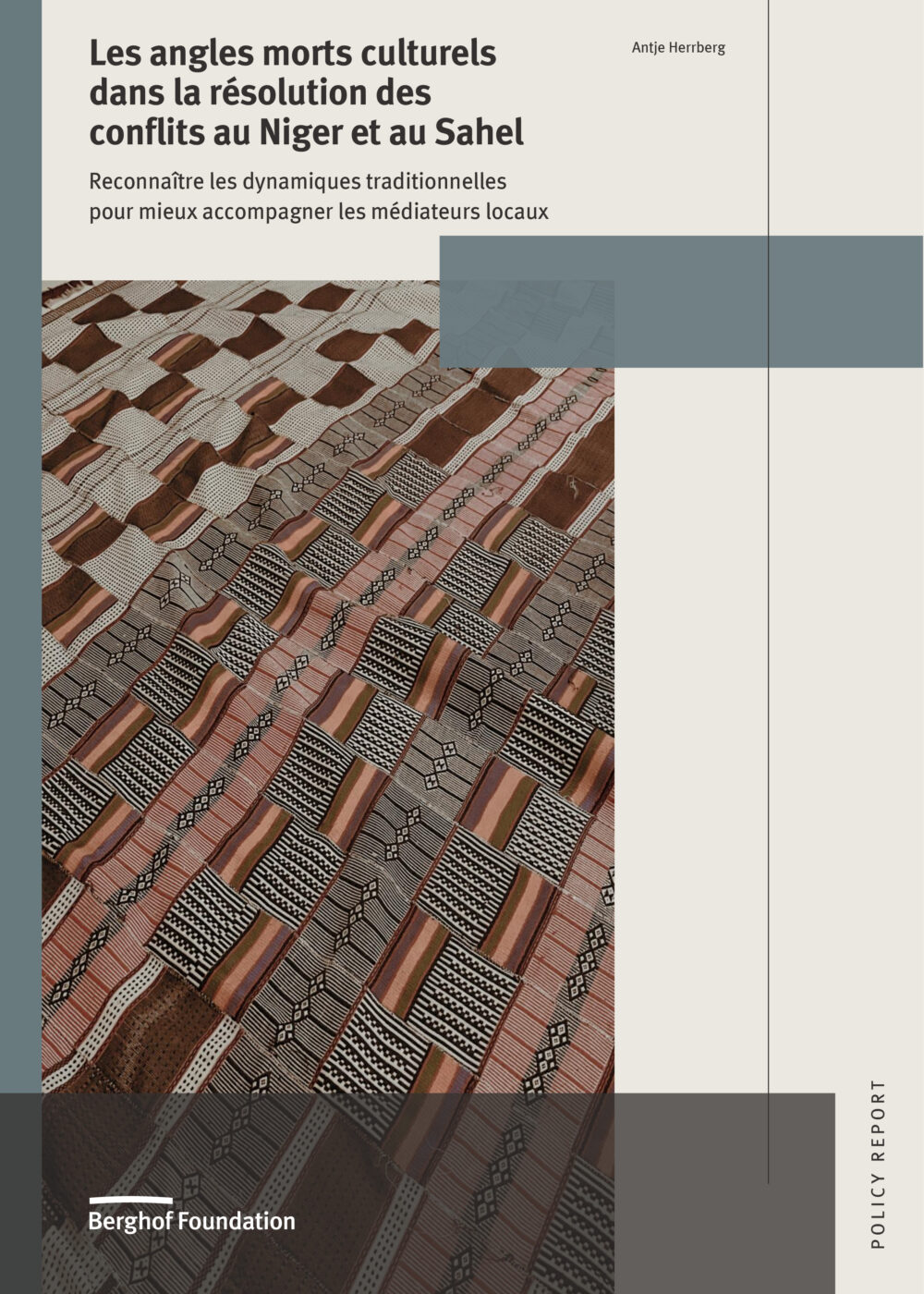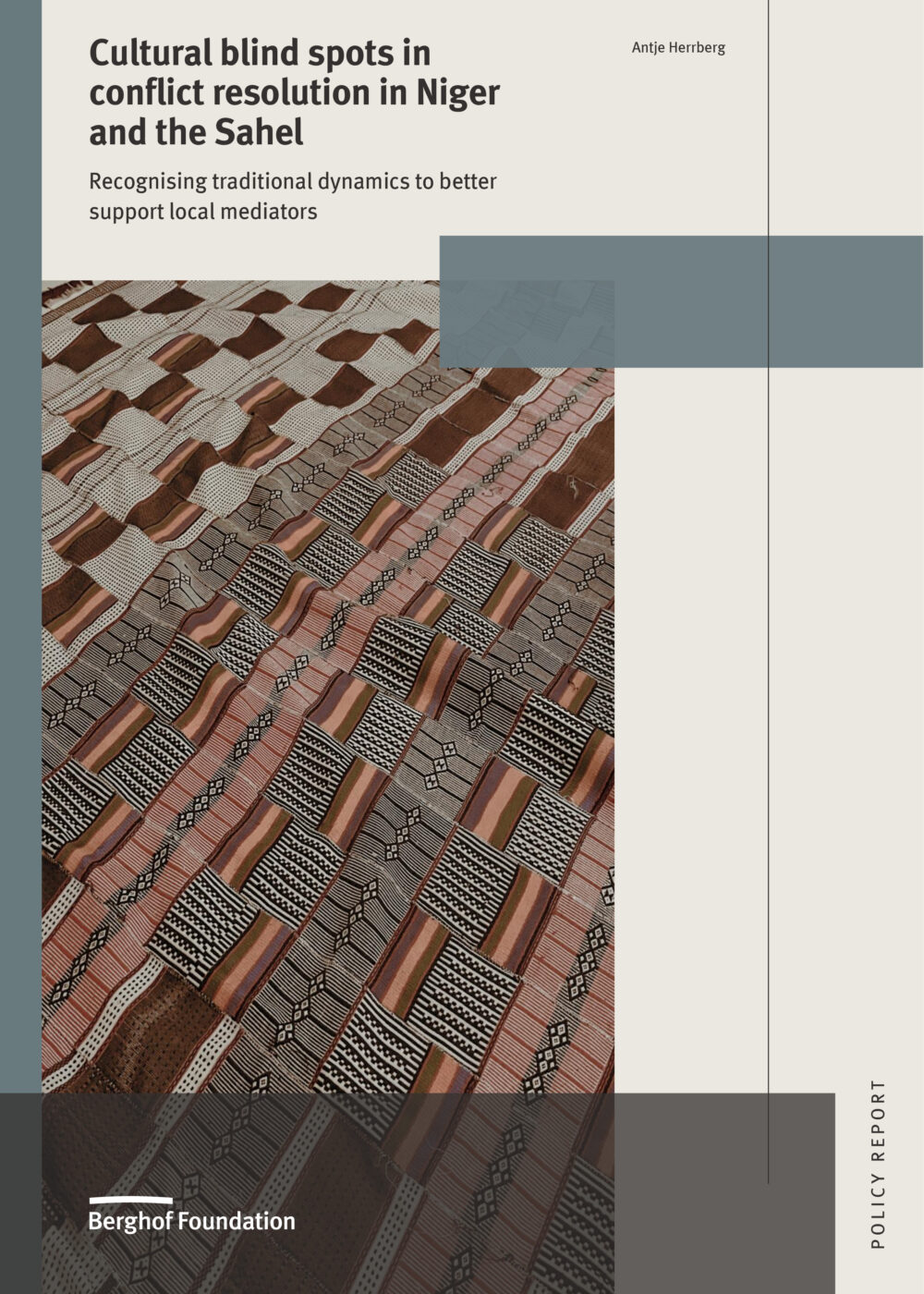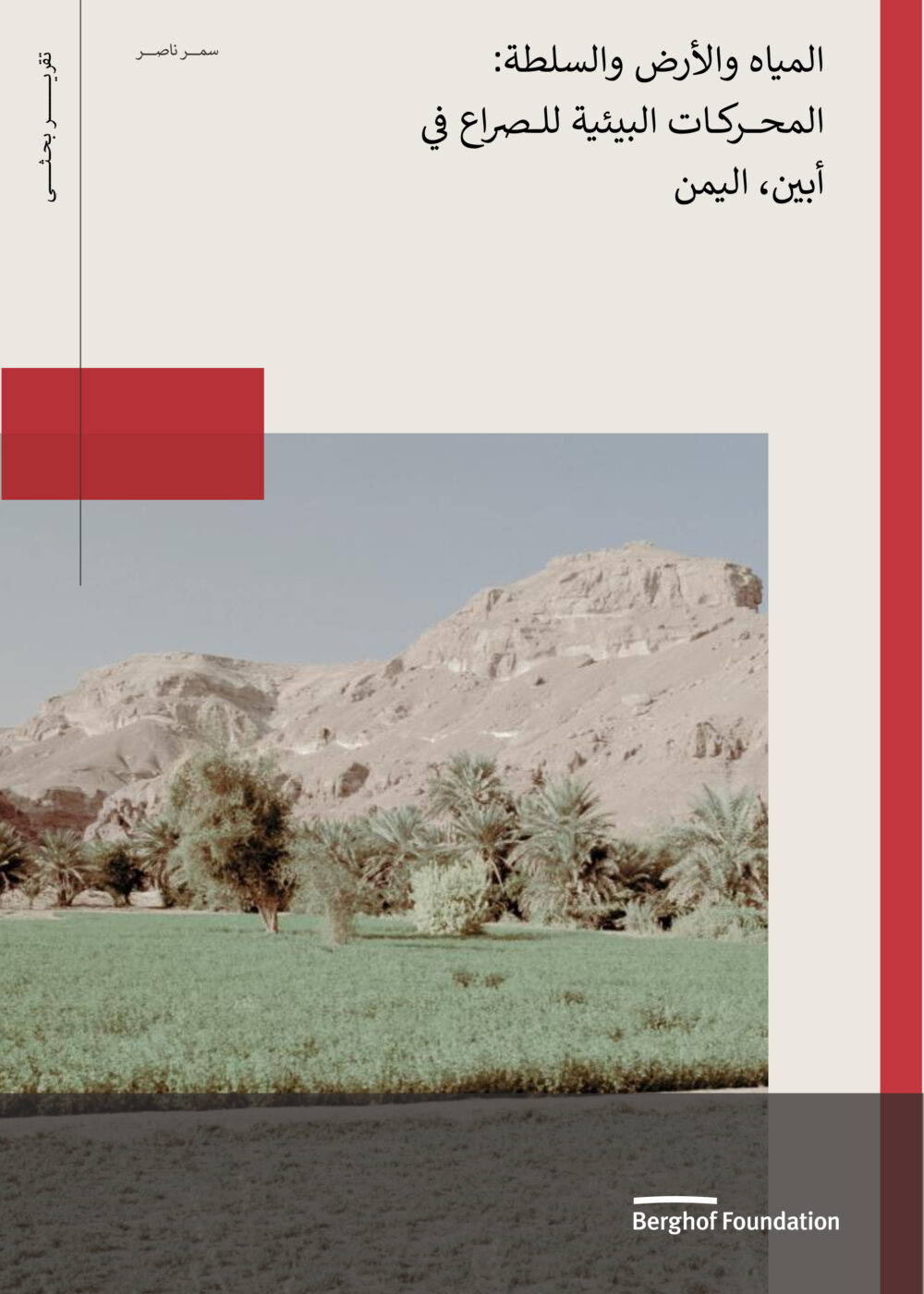Toolkit on climate-focused mediation and dialogue
Insights from Iraq
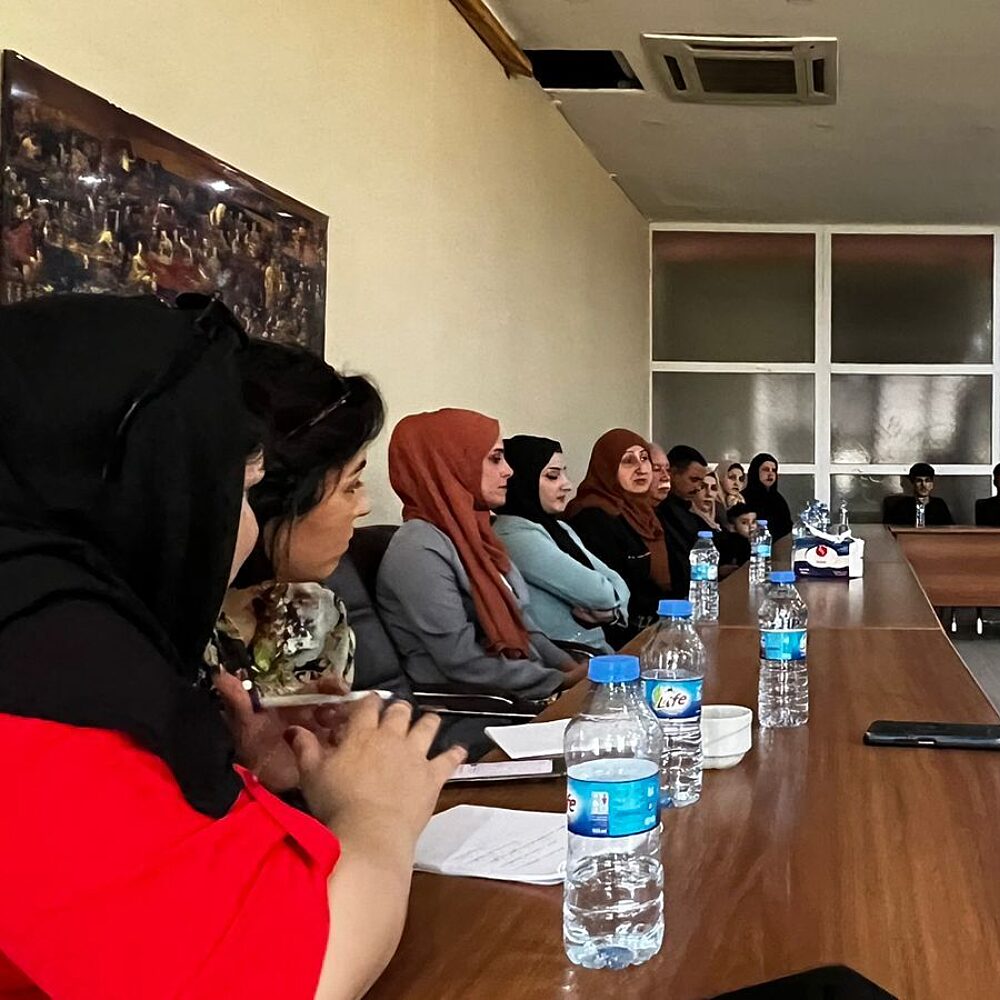
This toolkit offers insights, examples and key elements of an approach to addressing climate change related tensions and conflicts at the local level in Iraq through mediation and dialogue. Its aim is to offer both conceptual insights and practical perspectives on the topic extracted from our dialogue and mediation engagement in Iraq and from interviews with Iraqi dialogue facilitators and mediators. This toolkit was created as part of a cooperation project with the purpose of Strengthening Iraqi Capacities to Respond to Climate Risks and their Impact on Existing Conflict Dynamics. This project, implemented by the Berghof Foundation and Peace Paradigms Organisation (PPO) with support from the German Federal Foreign Office, is part of the Weathering Risk Peace Pillar led by adelphi.
The Weathering Risk Peace Pillar integrates climate and environmental security into peace programming in regions severely affected by conflict and climate risks. Led by adelphi in partnership with the Berghof Foundation, the Centre for Humanitarian Dialogue and the European Institute of Peace, the consortium has been implementing projects in Iraq, Yemen, Somalia, Nigeria and the Bay of Bengal since 2022. These projects focus on the climate-environment-peace-security (CEPS) nexus, using climate and environmental considerations as entry points for consultations, dialogues and mediation. This flagship initiative is supported by the German Federal Foreign Office.
There are no “one-size-fits-all” solutions in conflict transformation. Instead, we hope that this toolkit will serve as an invitation for ongoing exchange and learning about climate-related dialogue and mediation. By sharing insights and examples from our engagement, we want to contribute to and inspire discussion and reflection on implementing and enhancing climate-sensitive dialogue and mediation approaches and practices in different contexts.
For this purpose, we have developed one possible structured approach to provide an initial framework for addressing the complex dynamics between climate change, environmental degradation, peace and conflict through dialogue and mediation processes. While this approach reflects the methodology we are using in our engagement across different locations in Iraq, it may need adjustment and modification to be suitable for the climate change and conflict dynamics arising in other local contexts. This methodology emphasises local ownership by ensuring that communities lead the dialogue process, inclusivity by engaging diverse social groups such as young people, women and tribal leaders, and adaptability by allowing for modifications based on the local political, cultural and environmental context. These elements have proven essential in achieving outcomes that are both context-sensitive and sustainable.
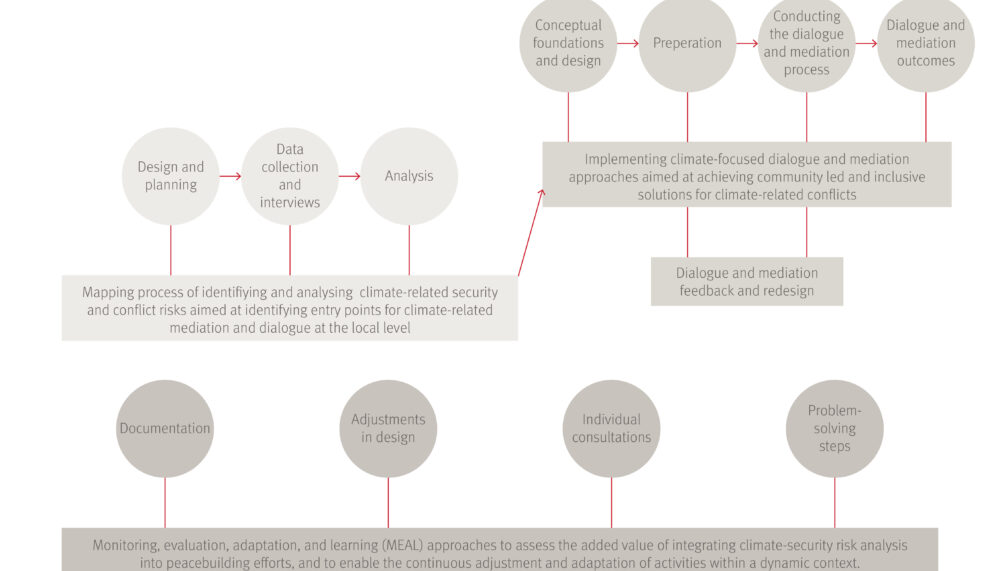
The following illustration provides a simple outline of the main steps we suggest in this toolkit to address and prevent conflict through the integration of climate and environmental issues into locally led dialogue and mediation processes:
Note: This is a simplified overview of the process. In practice, several iterations involving dialogue sessions, individual consultations and problem-solving steps take place between phases, especially between selection and implementation of interventions. These iterative steps are supported and facilitated by the mediation and facilitation team to ensure relevance, ownership and feasibility of outcomes.
Read the toolkit online
The toolkit is structured in two parts, the first focusing on analysing climate-related conflict risks and the second exploring the various steps of implementing dialogue and mediation approaches. Follow these links to dive into each topic.
Part I (Analysis) Part II (Implementation)
To read the online version in Arabic and Kurdish, use the language toggle at the top of the page.
Read the toolkit as a PDF
Next to the web version of the toolkit, we also offer it offline.
Download Download (in Arabic) Download (in Kurdish)
Get in contact
What do you think about the toolkit and how do you plan to implement it within your project?
We would like to hear from you. Please, contact us via email.
Thanks for your interest
If you find this collection useful, please consider making a small donation. Your support enables us to keep publishing.



